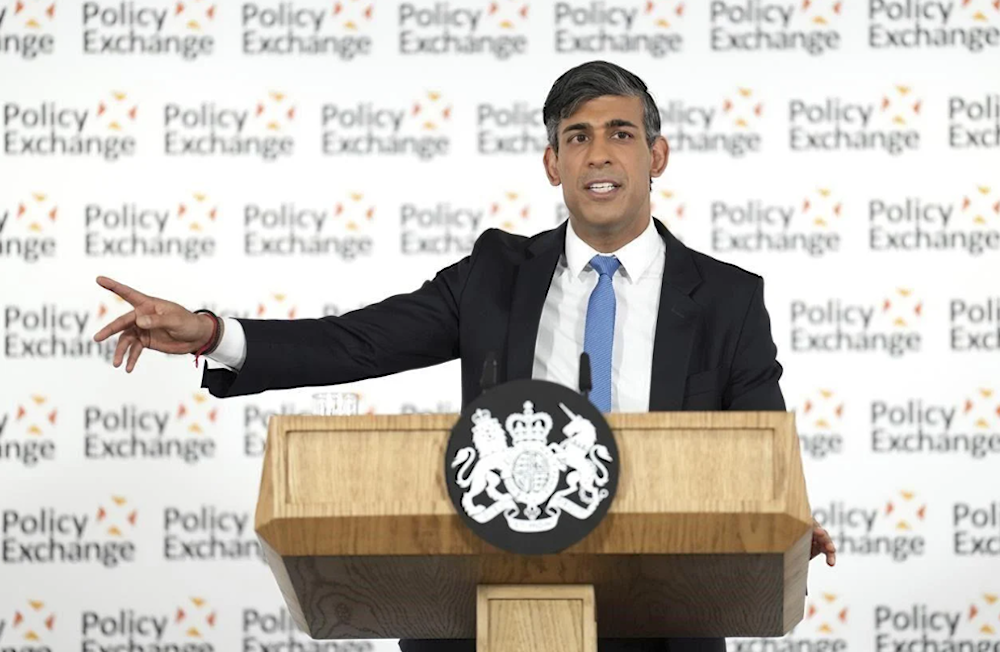Sunak under cabinet fire over plans to curb foreign student visas
Some cabinet ministers are opposed to the move due to warnings from university officials worrying about their institutions and businesses concerned with the impact of attracting overseas talent.
-

British Prime Minister Rishi Sunak delivers a speech on national security at the Policy Exchange, in London on May 13, 2024. (AP)
UK Prime Minister Rishi Sunak is facing a cabinet mutiny over plans to end a graduate visa system that lets international students stay and work in the UK for up to two years after graduation.
Downing Street is considering further limiting or eliminating the graduate system, which some fear may be exploited as a backdoor entrance route to the UK.
Some cabinet ministers like Education Secretary Gillian Keegan, Chancellor Jeremy Hunty, and Foreign Minister David Cameron are opposed to the move due to warnings from university officials worrying about their institutions and businesses concerned with the impact of attracting overseas talent.
According to a government insider, Keegan would oppose any actions that might affect the industry. "Her job is to support the higher education sector, which benefits from international students coming to this country," according to a source.
Cameron also reportedly is opposed to further damaging relationships with overseas universities.
The UK's Brexit has resulted in withdrawal from the bloc's Erasmus project, which has already had a significant impact on international interactions.
Sunak is now stuck between the demands of right-wingers looking to the Tory leadership and Conservative moderates concerned about the party's reputation and electoral prospects.
The UK tightened laws at the beginning of this year, requiring overseas students to bring family members to the country only if they were enrolled in postgraduate research courses or courses with government-funded scholarships. This has already resulted in a decline in numbers.
Dr. Michael Spence, president and provost of University College London, stated that additional restrictions on foreign student visas would be "an extraordinary act of national self-harm."
Spence explained that a "single cohort of international students brings £37bn of economic benefit to the UK," something he says is felt in "every part of the country," adding that the value is not only economic but that students bring "ideas and perspectives and build a profound connection with our country which lasts long after they leave.”
UK to have weakest-performing economy
Earlier this month, the Organisation for Economic Cooperation and Development (OECD) said Britain will have the weakest economic performance among G7 countries next year, attributing it to high interest rates and the lasting impacts of last year's inflation surge.
The think tank also downgraded its forecast for British economic growth from 0.7 percent last November to 0.4 percent.
The OECD added that the UK will plunge to the bottom of G7 economic growth rates in 2025 with a growth of 1 percent, directly behind Germany at 1.1 percent. Meanwhile, the United States and Canada will top the chart as the fastest-growing member economies at 1.8 percent.
Additionally, it is crucial to mention that the rate of homeless people in the United Kingdom increased by 15.8% between October and December 2023 compared to the same period in 2022 amid a housing crisis in the country, the UK Department for Levelling Up, Housing & Communities said in a report.
"Between October to December 2023 [...] 44,760 households were initially assessed as homeless and therefore owed a relief duty, up 15.8% from the same quarter last year," the report said earlier this month.

 3 Min Read
3 Min Read








